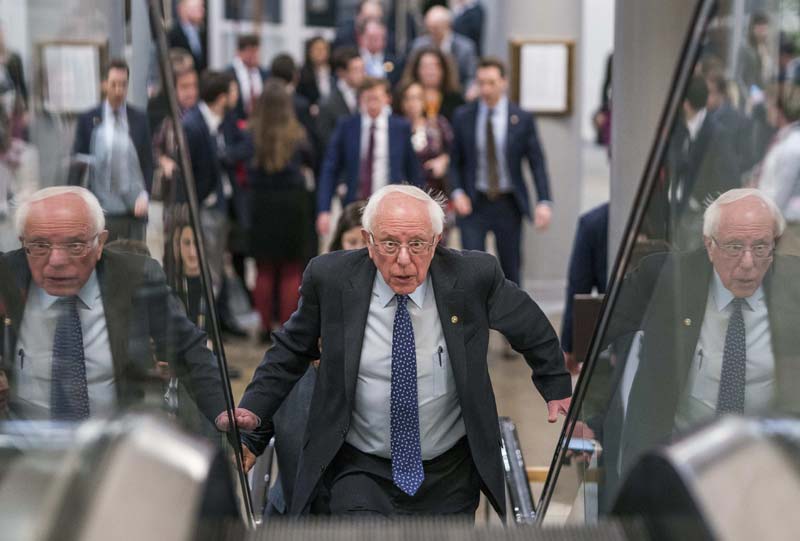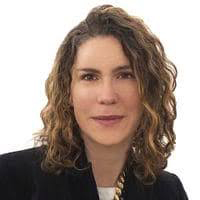 Melina Mara for The Washington Post
Melina Mara for The Washington Post
That has presented Sanders with some difficulty. In truth, his platform is more garden-variety European social democrat than nationalize-the-means-of-production traditional socialism; for that kind of politics, you have to look to Labour Party leader Jeremy Corbyn in Britain.
But the label works as a kind of branding exercise, meaning Sanders will always be the furthest-left candidate no matter how many of his policy ideas are appropriated. That's essential in a year when the left-wing activists of the Democratic base have been particularly left-wing and especially active. Branding does that; it sets you apart from competitors even when you're all selling essentially the same product.
Even a top-notch brand will ultimately lose market share, however, if the product developers fail to keep the offerings current. And with Sen. Elizabeth Warren, D-Mass., advancing steadily on Sanders in the polls, it looked as though Sanders needed a policy innovation to match his name recognition.
As though on cue, Sanders announced Monday that he would pair free college tuition, one of his signature 2016 initiatives, with a new bill to forgive nearly all of the $1.6 trillion in outstanding student loans.
There's nothing particularly socialist about either of these schemes. As the Urban Institute has pointed out, nearly 38% of the benefit of free two- and four-year college would go to students whose parents make more than $120,000 a year; less than 8% of the benefit would go to those with household incomes of less than $35,000 a year.
A similar calculus applies to student-loan forgiveness , with college-educated professionals claiming an outsize proportion of the dollars spent.
Advocates of Sanders' plan might retort that the disparity exists only because college is currently so expensive in the United States, fencing those who most need it out of the system altogether. That's possible, but the experience of free college elsewhere doesn't suggest it's true.
Free tuition in countries such as Germany and Ireland hasn't changed the fact that the children of educated and affluent parents are much more likely to attend (and complete) university, and even the Nordic countries are still struggling with educational disparities, particularly in the more prestigious and lucrative programs of study.
A more persuasive argument: Sanders' free-tuition and debt-cancellation plan is less an attempt at redistribution than a statement of values. Some things are simply beyond money, in other words, and college is one of them. Sanders seemed to suggest as much in announcing his new plan, saying, "We will make a full and complete education a human right." You don't have to pay tens of thousands of dollars to enjoy the right to peacefully protest or practice your religion; by analogy, you also shouldn't have to pay for college or health care.
Unfortunately, these newer-fangled human rights are substantially different from the old-fashioned kind because someone does have to pay for them. Physicians and nurses, and teachers and administrators, must be paid to spend their days providing your rights instead of doing something else.
And so, these rights will always be limited. That's why the countries that offer free college tend to provide something very different, and much cheaper, than the American residential, four-year state college -- something more like a community college or commuter school.
Given those limits, one still must ask why a self-proclaimed socialist has focused on a new right that will mostly line the pockets of the educated and affluent rather than, say, a right to public transportation or assisted living. One possible answer goes back to branding: As Joe Biden seems to be locking down the moderate lane of the Democratic primary, many other top candidates are heading leftward in pursuit of the remaining voters.
But another answer is that Sanders is actually feinting left while moving right, chasing not so much the radical vote as the moderate suburbanites who secured Congress for the Democrats during the 2018 midterms. Sanders is unlikely to pick up those voters during the primaries, but if he survives, he will need them during the general.
And while they're leery of the higher taxes his programs will require, they'll be somewhat less worried if the proceeds will largely be spent on them and their progeny.
Socialism for the upper middle class might not seem very, well, socialist, but it might turn out to be excellent politics.
Every weekday JewishWorldReview.com publishes what many in the media and Washington consider "must-reading". Sign up for the daily JWR update. It's free. Just click here.
(COMMENT, BELOW)
Megan McArdle is a Washington Post columnist who writes on economics, business and public policy. She is the author of "The Up Side of Down." McArdle previously wrote for Newsweek-the Daily Beast, Bloomberg View,the Atlantic and the Economist.


 Contact The Editor
Contact The Editor
 Articles By This Author
Articles By This Author